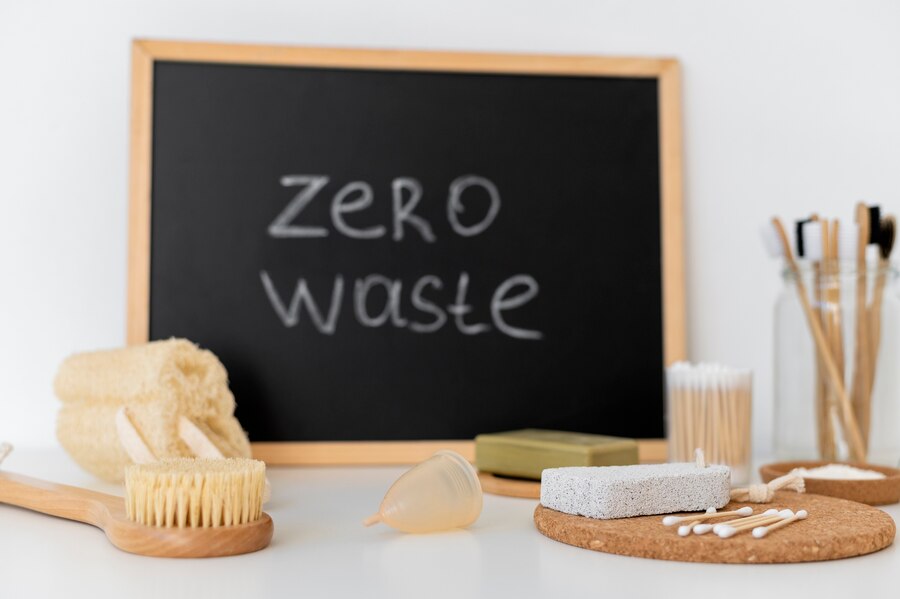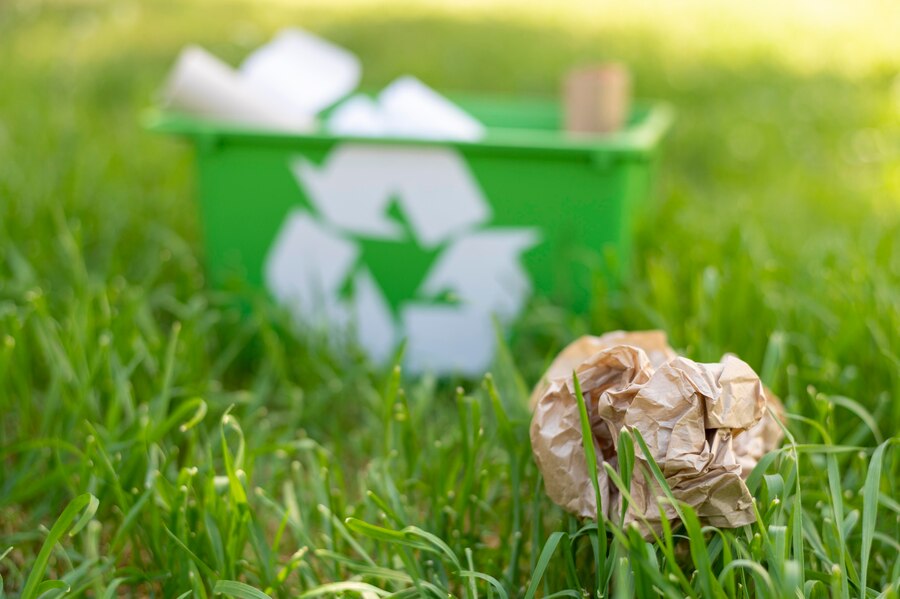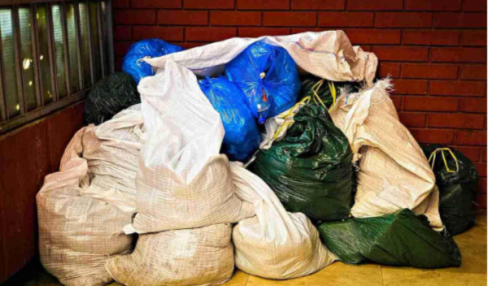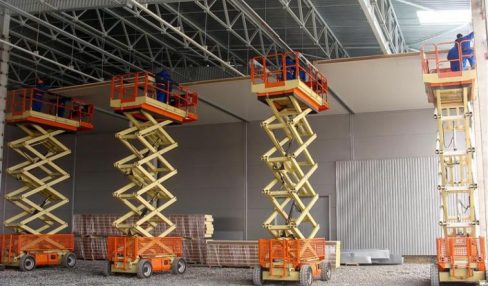Sustainable Living: Optimal Waste Management Strategies
09 May 2024
6 Mins Read

toc impalement
You’re probably concerned about the present environmental situation and climate change and pondering how you can improve.
Imbibing the practice of sustainable living into your lifestyle can be an excellent starting point and an effective way to change. The waste management sector can be a laboratory of experimentation. Hence, adequate waste management strategies are the need of the hour.
So, let’s explore more about this.
The Importance Of Sustainable Living

Sustainable living primarily focuses on reducing the need to use nature’s Earth’s resources. At the same time, it requires vehement effort by individuals or communities to curb their carbon footprint, thereby replacing it with sustainable consumption methods.
With everyone’s awareness and earnest efforts, that is implementing waste management strategies, the environmental impact fundamentally decreases.
To illustrate, let’s assume you’re from Melbourne, Australia. Melbourne is a bustling urban city, but sustainability is also at the top of its priority list. There are significant service areas all around Melbourne that advocate the use of sustainability practices such as recycling, waste disposal services, and composting.
The goal isn’t to usher in a complete change in peoples’ lifestyles all at once. However, the changes can take place with simple, small changes. Thus it gradually adds up over time. However, take an example: replacing plastic bags with reusable shopping bags significantly reduces plastic waste.
The shift towards sustainable living requires persistent efforts to recycle and reuse products. Thus, the mantra helps reduce the quantity of trash that results in landfills, leading to optimal waste management.
Community-Based Waste Management Solutions
Community involvement is another key aspect of promoting solutions for waste management strategies. Moreover, the local neighborhoods and communities can demonstrate this by regularly collecting recyclable materials like electronics and household hazardous wastes. They are not usually accepted in regular recycling bins.
In addition, the local communities create composting systems where everyone can contribute directly to their biodegradable wastes. The compost can be used in local parks or for the area’s landscaping requirements.
Promoting second-hand markets or organizing swap meets within society not only extends product life-cycle but foster a culture of reuse. Additionally, communities should advocate for schools to educate children about waste management strategies., Consequently, the imminent generation will be much more aware and that can lead to sustainable lifestyles.
Role Of Recycling And Composting
Recycling and composting play vital roles in waste management. Recycling diverts waste away from landfills and incinerators by transforming it into new items, which requires fewer resources and energy than manufacturing from raw materials.
Composting decomposes organic waste like kitchen scraps and yard trimmings into nutrient-rich humus, substituting the need for chemical fertilizers. Additionally, it contributes actively to soil health and carbon sequestration while reducing methane emissions from landfills.
Implementing waste management strategies like recycling and composting strategies together yields incredible results. Moreover, it reduces pollution, saves energy, decreases water usage, and reduces greenhouse gas emissions, ultimately bettering the environment.
Ultimately, integrating recycling and composting strategies comprehensively into your waste management plans is crucial if people are to move closer to reaching a sustainable existence on Earth.
Advancements In Waste Treatment Technologies
Technological advancements have brought in revolutionary ways to treat waste material and to attain sustainable living. The conversion of organic waste into bio-energy is a prominent example. Anaerobic Digestion (AD) is the process that breaks down the micro-organisms into biogas and digestate. It turns into a nutrient-rich soil conditioner.
Other successful innovation targets are non-biodegradable wastes. A technology called pyrolysis is used to convert plastic waste into fuel. The process involves heating the waste material in the absence of oxygen. Ultimately, it forms a chemical reaction that transforms the material into bio-oil, syngas, and char.
Technological Waste Recycling (TWR) is the methodology that applies to electronic waste. The methodology restrains chemicals like lead and chromium in the electronic waste from contaminating soil and water resources. A machine helps recover metals such as silver, gold, and reusable plastic from the e-waste.
The Environmental Protection Agency also promotes diverse technologies that convert landfill gas (LFG) into an energy source. This not only helps reduce harmful greenhouse gases but also contributes actively to the production of renewable energy.
Benefits Of Zero Waste Lifestyles

Adopting a zero-waste lifestyle can significantly influence the environment’s health.
Some benefits include:
🌿 Reduced pollution: Discarding less waste reduces the amount of litter that ends up polluting the environment – whether it’s land, sea, or air.
🌿 Saved resources: By reducing, reusing, and recycling, you lower demand for new products. Consequently, fewer natural resources are exploited for production and packaging purposes.
🌿 Economic gains: With conscious purchasing decisions and practicing waste control at home, people can save a considerable amount of money.
🌿 Lasting change: A zero-waste lifestyle can be useful for both individuals and communities. It helps create and sustain a culture that respects resources and values conservation.
Individuals embarking actively on a zero-waste journey can bring in a paradigm shift in this realm by sending a clear signal to industries regarding sustainable responsibilities, thereby encouraging corporations to take bold steps and embrace greener choices.
Legislative Measures For Waste Management
Legislation plays a crucial role in shaping waste management systems. Governments across the globe are acknowledging the severity of the waste crisis and enacting laws to mitigate its negative implications.
In the U.S., regulations like the Resource Conservation and Recovery Act (RCRA) create a framework for managing hazardous and non-hazardous waste. It emphasizes waste prevention and conserving energy and natural resources.
The European Union (EU) implemented the Landfill Directive, which sets stringent rules for landfill management to prevent or reduce harmful effects on water, air, soil, fauna, flora, and human health. Another remarkable regulation is the Waste Electrical and Electronic Equipment Directive (WEEE), steering e-waste away from landfills towards recycling centers.
The EU Waste Framework Directive has even set an ambitious target: by 2030, at least 70% of municipal waste should be either reused or recycled. A focus on strict regulatory frameworks is indubitably required to push toward optimal waste management globally.
Related: What is A Waste Management Consultant?
Challenges In Implementing Waste Management
Despite promising efforts and methods, several challenges impede the full-scale implementation of sustainable waste management systems. The foremost challenge is building efficient infrastructures that support reduction, recycling, and responsible disposal of waste.
Lack of public awareness about the gravity of waste issues, proper disposal methods through services like Same Day Rubbish Removal, and benefits of reduced consumption also hinder success. Moreover, financial constraints often lead to trade-offs between ecological concerns and economic viability.
In developing countries, uncontrolled dumps are prevalent due to weak regulations and management systems. The improper disposal of hazardous wastes poses significant environmental and health threats to these regions.
Lastly, fast-paced lifestyles foster a throw-away culture where convenience is preferred over sustainable action. Changing consumer behavior is a real challenge that requires concerted effort and started-from-scratch education.
Future Directions In Sustainable Waste Management

As the waste crisis intensifies, people will have an opportunity to reshape waste-handling procedures into more sustainable practices. Future directions in waste management should focus on moving up the waste hierarchy – favoring prevention and minimizing disposal.
Emphasizing circular economy principles like designing out waste, keeping products and materials in use, and regenerating natural systems can revolutionize current management systems.
Pairing these principles with state-of-the-art technology would potentially lift recycling rates, reduce landfilling, and provide sustainable energy sources.
Moreover, legislative bodies should commit to stringent regulations and provide incentives for businesses moving towards sustainable practices. Enterprises should disclose their waste footprint – a transparency that might lead to lesser waste production.
The Conclusion
It is indispensable to address people’s existing attitudes towards waste generation. Rethinking traditional methods and introducing advancements towards sustainability is a call to action for everyone.
As major stakeholders of this world, it is your duty to learn and implement optimal strategies for managing waste. In doing so, you move towards a sustainable existence on Earth.
Read Also:


















Comments Are Closed For This Article